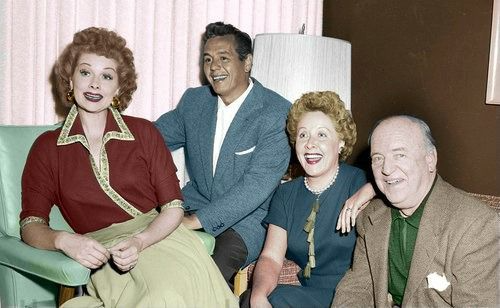
When I Love Lucy first aired on CBS in October 1951, few could have predicted the monumental impact it would have on television and popular culture. Over seven decades later, this groundbreaking sitcom remains one of the most beloved and influential shows in history, setting a standard for comedy that many series still strive to emulate.
A Perfect Storm of Talent and Innovation
At the heart of I Love Lucy’s success was the extraordinary talent of Lucille Ball, whose physical comedy and impeccable timing made her character Lucy Ricardo unforgettable. Paired with her real-life husband Desi Arnaz, who portrayed Ricky Ricardo, the show drew from their genuine chemistry and dynamic relationship to craft compelling, hilarious narratives that resonated with millions.
Lucille Ball’s willingness to embrace slapstick, exaggeration, and physical humor broke new ground for female comedians at a time when TV was dominated by male performers. She portrayed Lucy as a multidimensional character — ambitious, mischievous, flawed, yet deeply relatable — that challenged stereotypes of women in the 1950s.
Revolutionizing Television Production
Beyond the acting, I Love Lucy was a pioneer in television production. It was the first scripted show to be filmed using a multi-camera setup in front of a live studio audience, utilizing 35mm film rather than the lower-quality kinescope recordings common at the time. This approach resulted in higher-quality visuals and an authentic laugh track, capturing audience reactions in real-time.
This innovation not only enhanced the viewer’s experience but also allowed the show to be rerun — a practice that was not widely done before. As a result, I Love Lucy became one of the earliest shows to benefit from syndication, further solidifying its cultural footprint.
Iconic Episodes and Cultural Legacy
Episodes like “Lucy Does a TV Commercial” (Vitameatavegamin) and “Job Switching” (the famous chocolate factory scene) have become timeless examples of comedic excellence. These scenes are still studied in acting classes and referenced in pop culture, showcasing Lucille Ball’s extraordinary talent.
I Love Lucy also influenced countless other sitcoms by proving that humor rooted in everyday situations and character-driven plots could captivate a broad audience. Shows like Friends, Seinfeld, and The Office all carry the DNA of I Love Lucy’s narrative style and comedic timing.
Enduring Popularity
Even decades after its final episode aired in 1957, I Love Lucy remains widely watched on streaming platforms and in syndication worldwide. Its characters, catchphrases, and comedic moments continue to delight new generations, proving that great storytelling and laughter truly are timeless.
